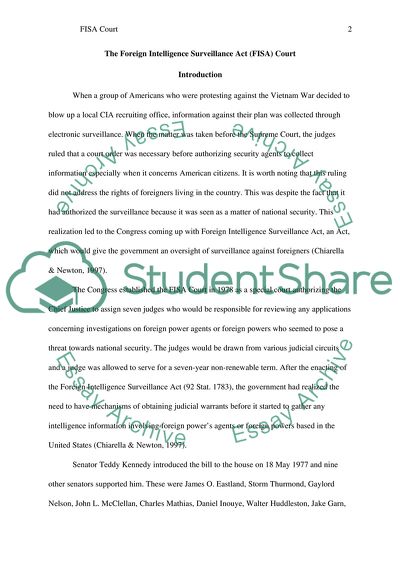Cite this document
(“The Foreign Intelligence Surveillance Act Court Research Paper”, n.d.)
The Foreign Intelligence Surveillance Act Court Research Paper. Retrieved from https://studentshare.org/politics/1787064-fisa-court
The Foreign Intelligence Surveillance Act Court Research Paper. Retrieved from https://studentshare.org/politics/1787064-fisa-court
(The Foreign Intelligence Surveillance Act Court Research Paper)
The Foreign Intelligence Surveillance Act Court Research Paper. https://studentshare.org/politics/1787064-fisa-court.
The Foreign Intelligence Surveillance Act Court Research Paper. https://studentshare.org/politics/1787064-fisa-court.
“The Foreign Intelligence Surveillance Act Court Research Paper”, n.d. https://studentshare.org/politics/1787064-fisa-court.


